Share
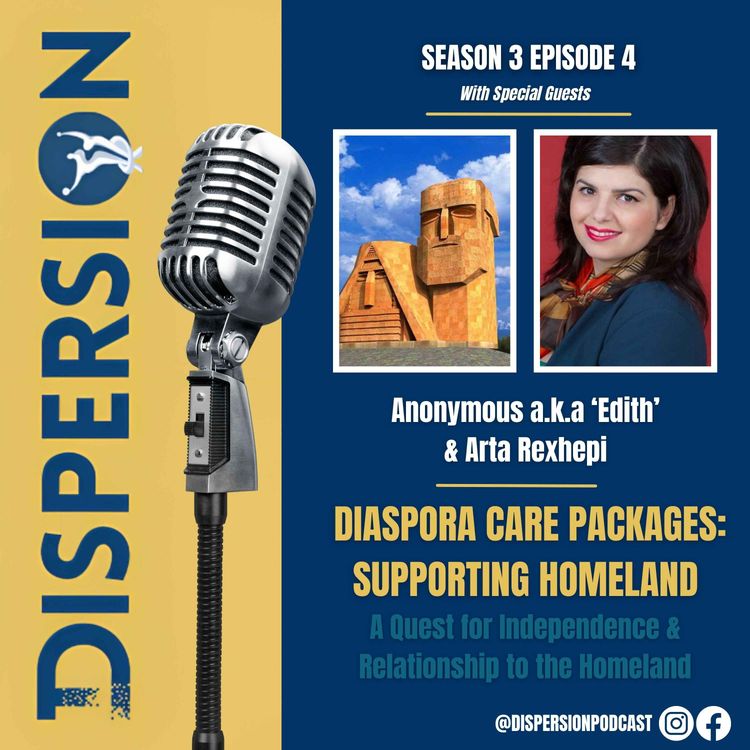
Dispersion
Diaspora Care Packages: Supporting Homeland
Season 3, Ep. 4
•
In this episode, guests will explore their relationship with their own identity in relation to their home state. What sets this apart from other episodes, is that their homeland was not, or still hasn’t been, recognized as an independent state. We explore how this fight for independence and recognition has shaped the guests into who they are today, and why they may have a different relationship with their homeland than other Diaspora groups. The two cases represented in this episode are Nagorno-Karabakh and Kosovo.
More episodes
View all episodes
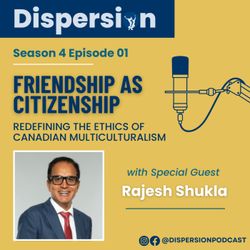
1. Friendship as Citizenship
51:07||Season 4, Ep. 1In this special episode of Dispersion, host Jen Haddow speaks with Dr. Rajesh C. Shukla, Associate Professor at Saint Paul University and guest editor of the upcoming Diaspora journal issue, titled Immigrant Diaspora and the Changing Dimensions of Canadian Multiculturalism about reimagining Canadian multiculturalism through the lens of social connections. Reflecting on his own migration journey and academic work, Dr. Shukla explores how belonging and identity shape the immigrant experience in Canada. This conversation offers a first look into Season 4 of Dispersion and its focus on the evolving realities of Canadian multiculturalism. Tune in for an inspiring discussion on how civic life in Canada can be redefined through sympathy, community, and friendship.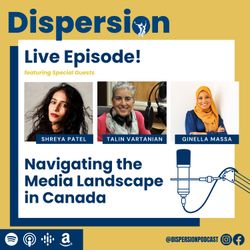
Dispersion Live Event: Navigating the Media Landscape in Canada
49:07||Season 4, Ep. 0This special live episode of Dispersion, recorded at the Toronto Reference Library on March 28, 2025, brings together three distinguished voices from the Canadian media industry. Through candid storytelling and thoughtful reflection, each guest offers a personal lens on navigating the media landscape—unpacking how their identities have shaped both the challenges they've faced and the opportunities they've found. Though their paths differ, their shared experiences of self-discovery and professional growth will resonate with many. Tune in as they explore what it means to move through the world of media while negotiating questions of identity, representation, and belonging.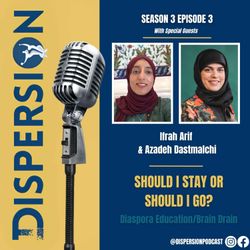
3. Should I Stay or Should I Go?
01:03:36||Season 3, Ep. 3This episode explores the push and pull factors of immigration in the lives of our guests as well as the notion of brain drain. Joining us for this episode are Azadeh Dastmalchi and Ifrah Arif. Dastmalchi is the CEO and Co-Founder of VitalTracer, a medical startup that designs smart wearable medical devices. Arif currently works as a Senior Policy and Program Advisor at Immigration, Refugees and Citizenship Canada.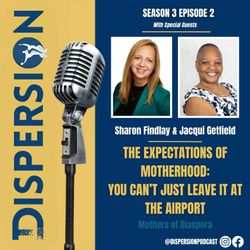
2. Expectations of Motherhood: “You can’t just leave it at the airport”
01:17:24||Season 3, Ep. 2This episode explores the diverse experiences of motherhood in Canada’s Diaspora communities. It navigates the nuances and realities of immigrant women, their experiences, their journeys in Canada, as well as the vital role that mothers play in shaping identities and culture for the next generation. Joining us for this episode are Dr. Jacqueline Getfield and Sharon Findlay, both mothers, and experienced both personally and/or professionally on the subject of diasporic motherhood.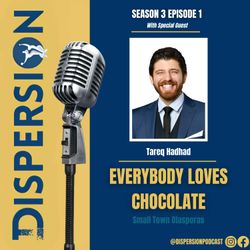
1. Everybody Loves Chocolate
47:37||Season 3, Ep. 1This episode explores what it looks like to find connections in one's hostland in the cozy confines of a small town. What brings that unmistakable sense of home in such places, and how do these communities and the diasporas within them, make their mark on the towns they’ve adopted? Sharing his experiences with us is Tareq Hadhad, Owner/Founder of Peace by Chocolate and a Syrian Refugee in Small Town Nova Scotia.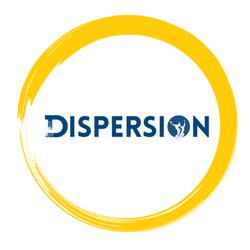
5. One Word: Boundaries
44:26||Season 2, Ep. 5In this episode, Ilaneet and Aida discuss the complexities of navigating their gender and sexual identities in different diasporic spaces. They dive into the challenges of acknowledging gender norms in diverse social spaces while not being prescriptive, the tensions surrounding feminism, and the importance of maintaining boundaries in different settings.
4. Our Identities Don’t End at the City Limits
48:04||Season 2, Ep. 4In this episode, Jean-Paul and Sacha have a candid conversation about their Indigenous identities as they relate to land and place, and the complexities they face in navigating their identities while living in urban spaces. This episode explores tensions between Indigenous ways of knowing and relationships with the land, and the ownership words utilized in Diaspora Studies.
3. Dinner Conversations and Fluid Identities
56:09||Season 2, Ep. 3In this episode Randal and Dilmurat discuss the inseparable nature of their cultural and religious identities, and how histories of persecution based on religion have contributed to a strong sense of peoplehood within their religious diaspora communities. This episode explores fluid and intersecting identities, and cross generational education.